Are you looking to update your immunization records but unsure how to get started? Sending a letter to request updates can seem daunting, but it doesn't have to be! In this article, we'll walk you through a simple letter template that you can easily customize for your needs. Ready to get your immunization records in order? Let's dive in!
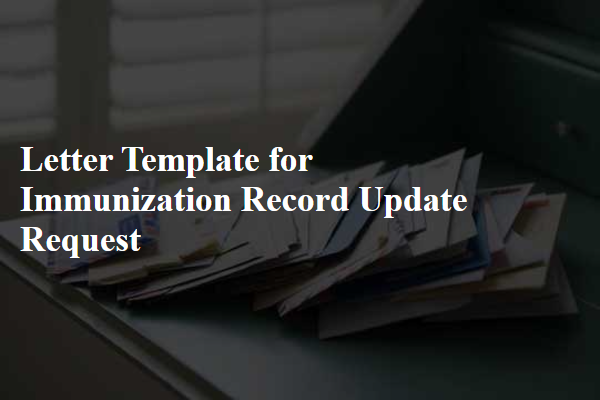
Patient Identification Information
Patient identification information includes essential details for successfully updating immunization records. Full name signifies the individual's official identity, while date of birth provides crucial context for age-specific vaccinations. Unique patient ID or medical record number, often assigned by healthcare providers, ensures accurate tracking within electronic health systems. Contact information, including phone number and email address, facilitates communication for follow-up inquiries or clarifications. Address may assist in determining residency-related immunization requirements or local health department notifications. This comprehensive patient identification framework ensures proper handling and security of immunization records across healthcare facilities.
Contact Details
Individuals seeking to update their immunization records must provide accurate contact details, including names (full first and last name), phone numbers (preferably a mobile number for direct communication), and email addresses (for confirmation and further correspondence). Additional identifiers such as date of birth (to verify identity) and address (to match records accurately) are also crucial. Ensuring this information is precise enhances the speed and efficiency of the update process, enabling healthcare providers to promptly access and modify immunization documentation in compliant health information systems.
Specific Vaccines Requested
An immunization record update request often involves essential vaccines such as Measles, Mumps, Rubella (MMR), Diphtheria, Tetanus, Pertussis (DTaP), Polio (IPV), and Hepatitis B. These vaccines play a crucial role in preventing outbreaks of infectious diseases, notably in school-aged children and vulnerable populations. The MMR vaccine is particularly significant, as it protects against highly contagious viral infections that can lead to severe health complications. The DTaP vaccine provides immunity against three serious bacterial diseases, with Tetanus being a major cause of morbidity in adults. Keeping accurate vaccination records is vital for individual health safety and community-wide protection. Timely updates ensure compliance with school requirements and potential travel mandates.
Preferred Communication Method
The process of updating immunization records is essential for maintaining accurate health information. Individuals may request updates through various preferred communication methods, including email, phone calls, or physical mail. Timely communication ensures that important vaccines, like the measles, mumps, and rubella (MMR) vaccine, administered at specific intervals (typically between 12 to 15 months and again at 4 to 6 years of age), are properly documented. Public health agencies often utilize standardized forms for this purpose, streamlining the update process. Ensuring records reflect current vaccination status is critical, particularly for school enrollment requirements, travel vaccinations, and overall public health initiatives.
Legal and Privacy Compliance Statements
Immunization records play a crucial role in public health and personal medical history. The Health Insurance Portability and Accountability Act (HIPAA) establishes standards to protect sensitive patient information from unauthorized disclosure. Ensuring legal compliance involves safeguarding personal identifiable information and maintaining confidentiality when updating immunization records. Organizations must also adhere to local and federal guidelines regarding data handling and patient consent, ensuring that privacy protocols are strictly followed. In instances of requests for record updates, it is vital to verify identity through secure methods to prevent potential identity theft or misuse of health information. Compliance training for staff should prioritize confidentiality and ethical standards in managing immunization data.
Letter Template For Immunization Record Update Request Samples
Letter template of immunization record update request for school enrollment.
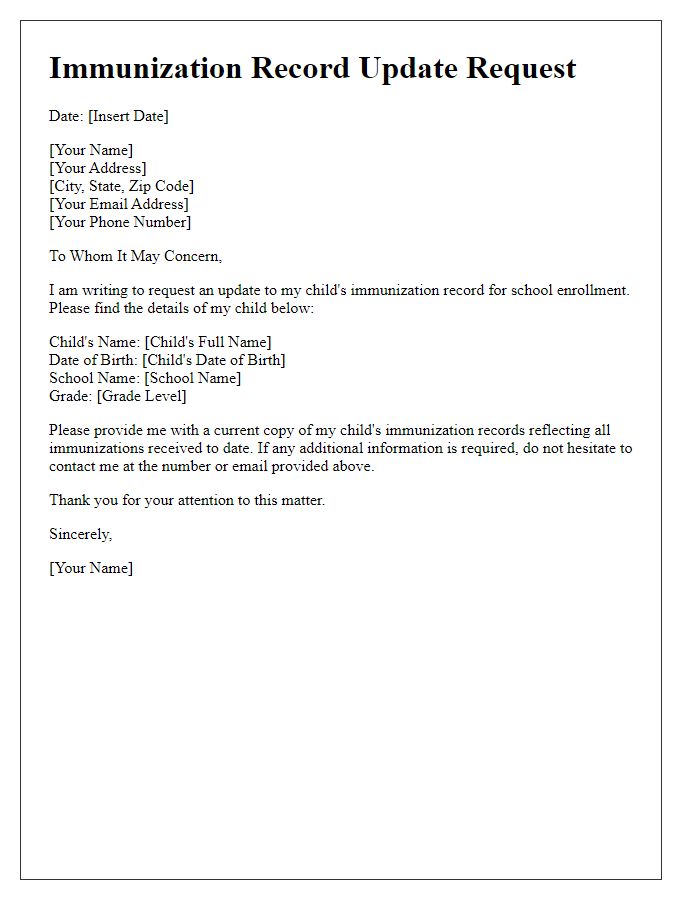
Letter template of immunization record update request for employment verification.
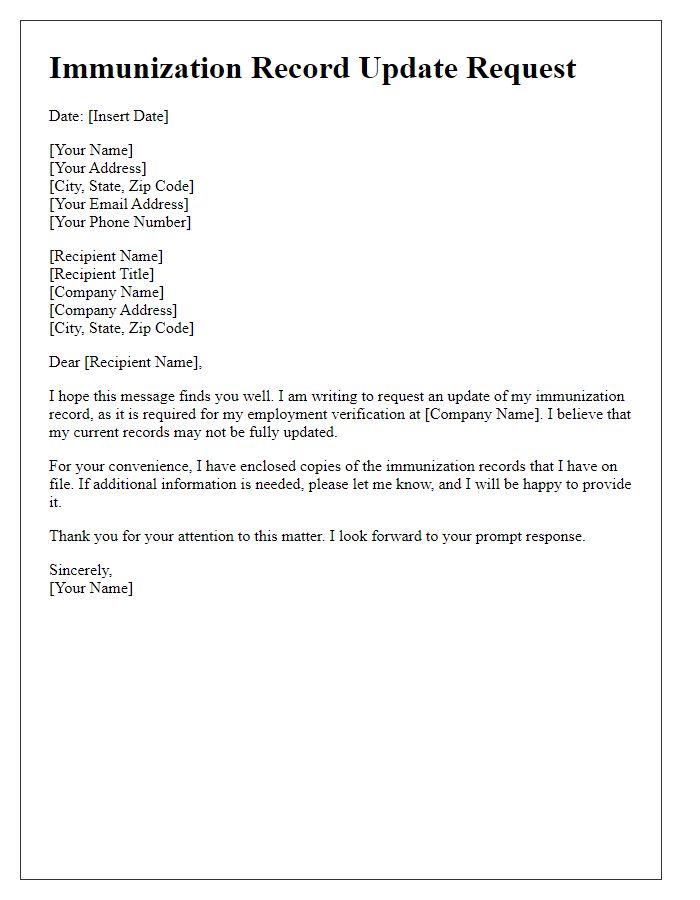
Letter template of immunization record update request for travel documentation.
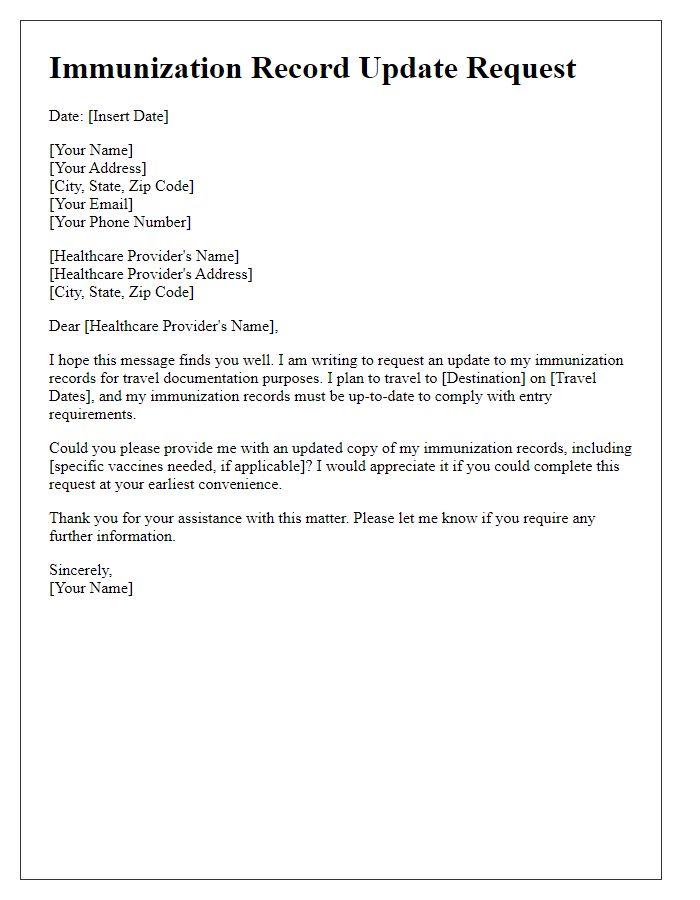
Letter template of immunization record update request for sports participation.
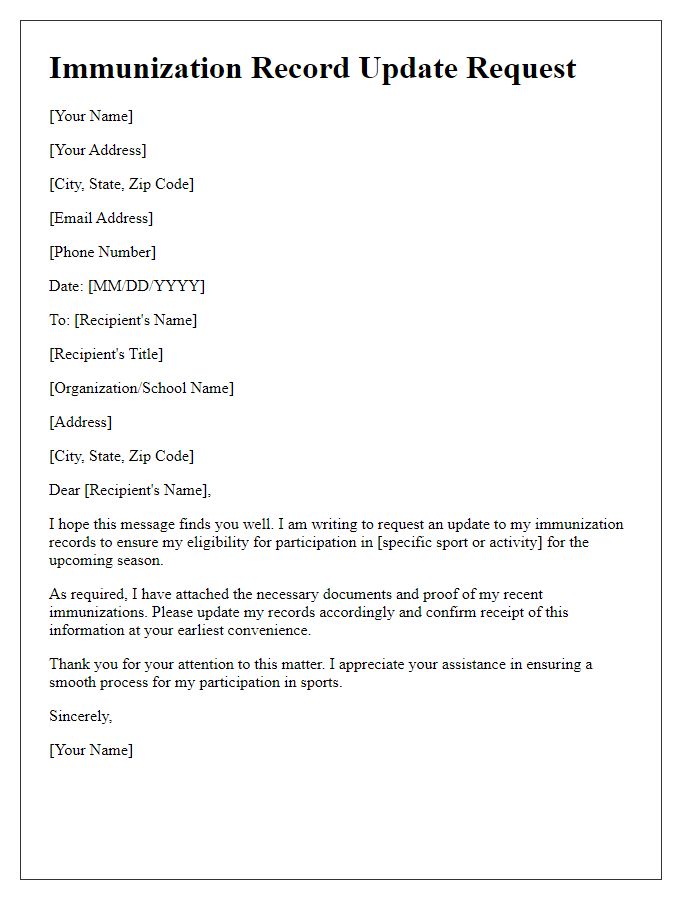
Letter template of immunization record update request for healthcare provider.
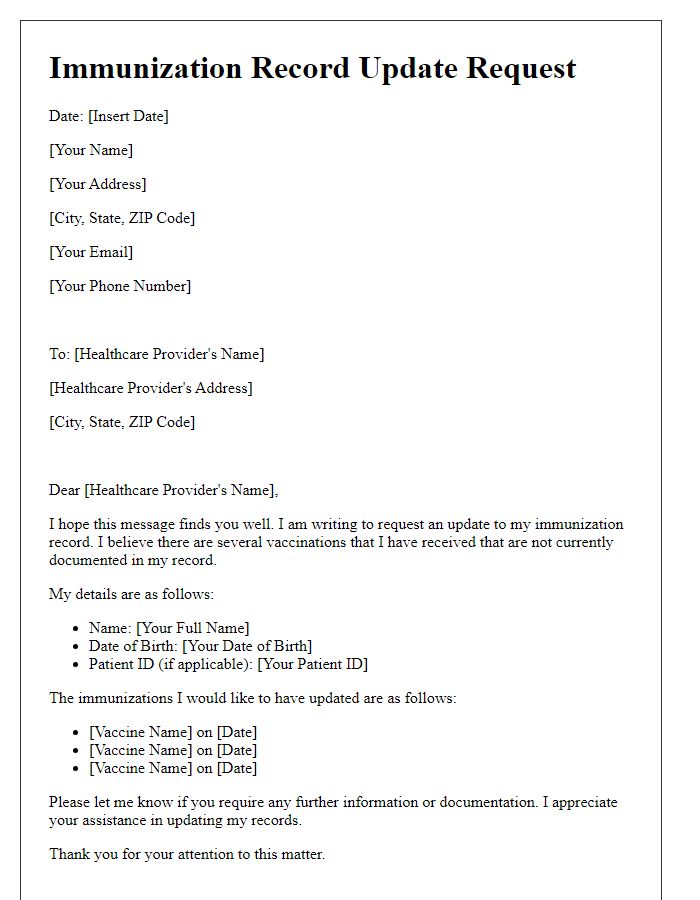
Letter template of immunization record update request for insurance purposes.
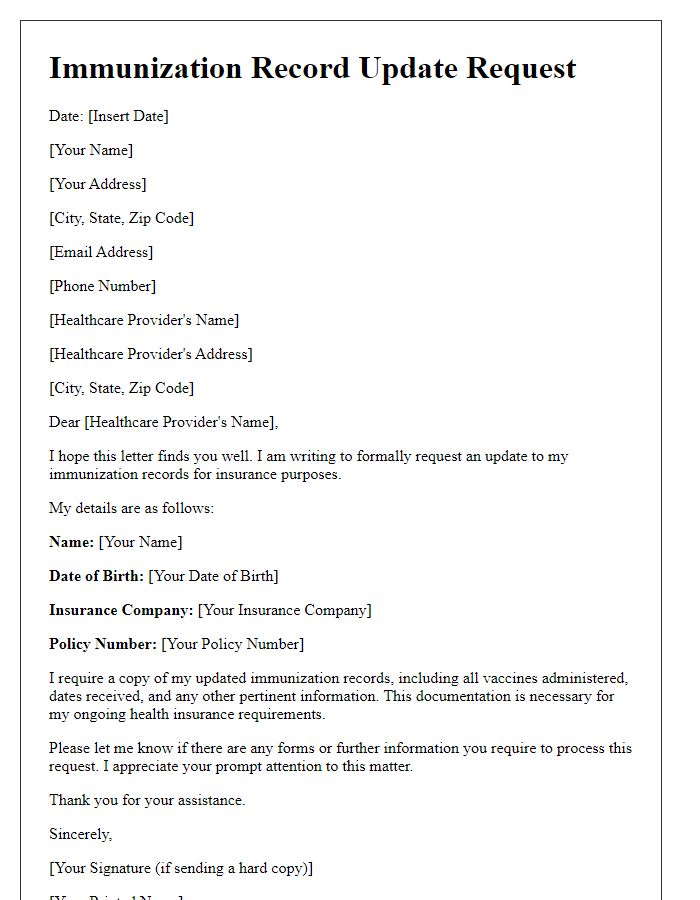
Letter template of immunization record update request for daycare admission.
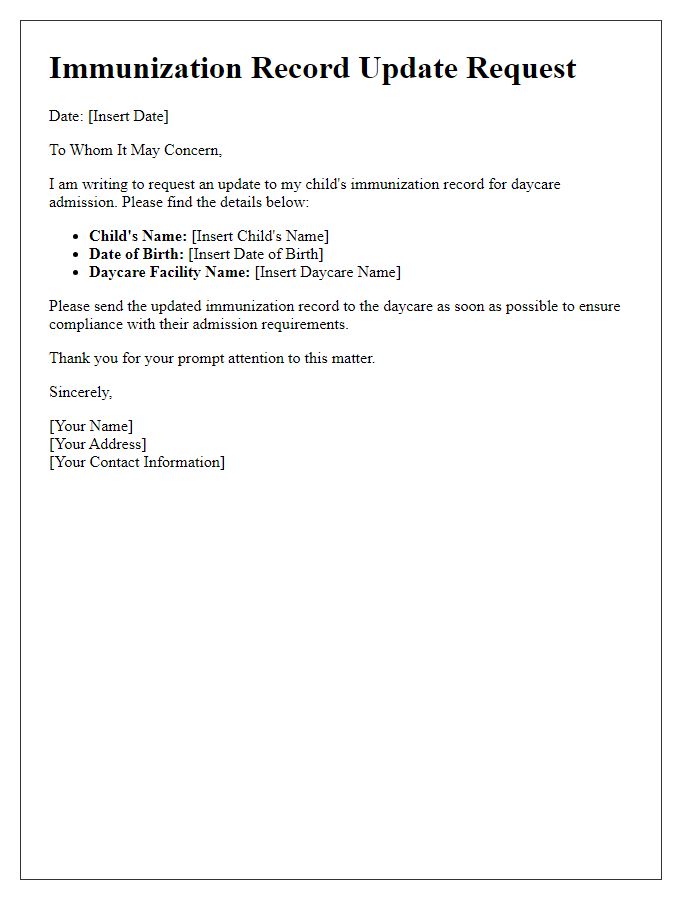
Letter template of immunization record update request for community health services.
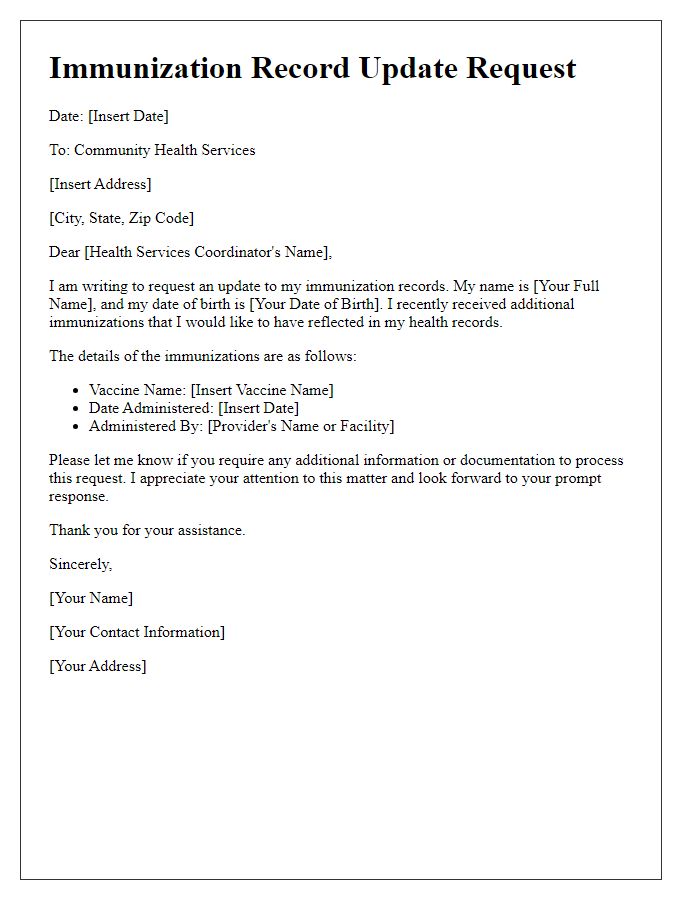
Letter template of immunization record update request for college application.
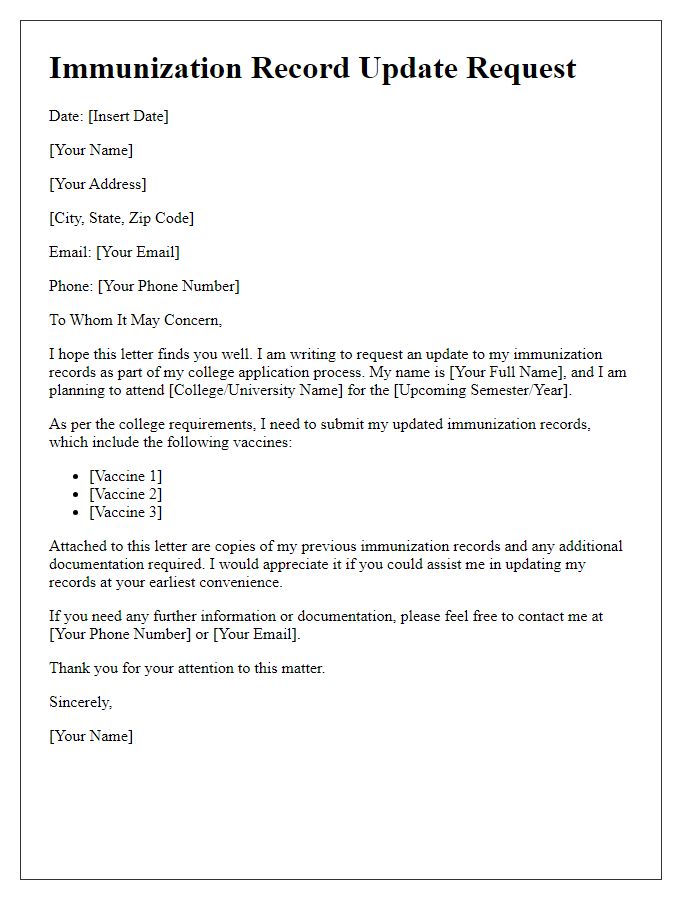

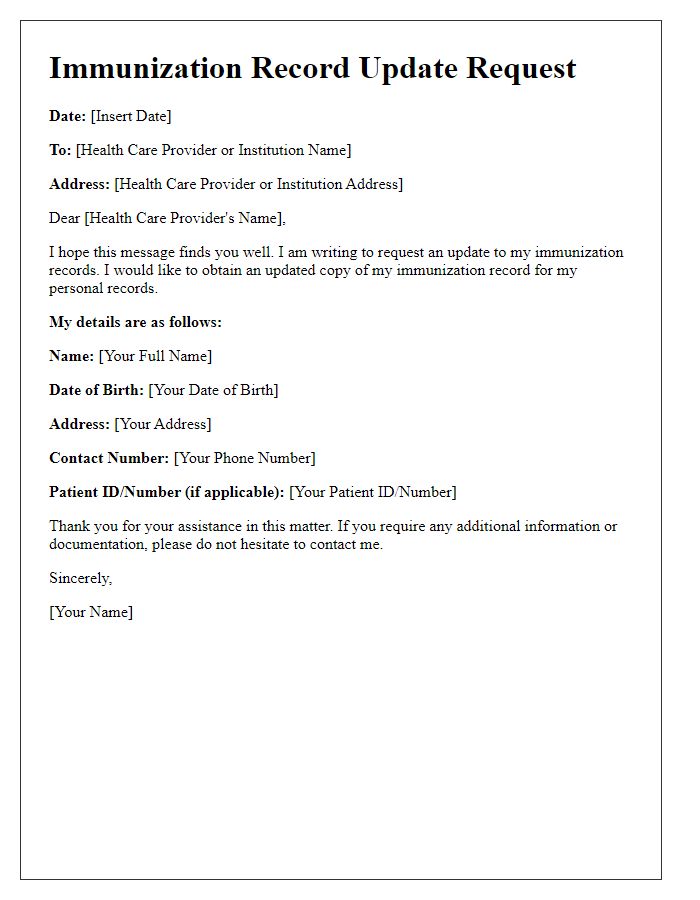

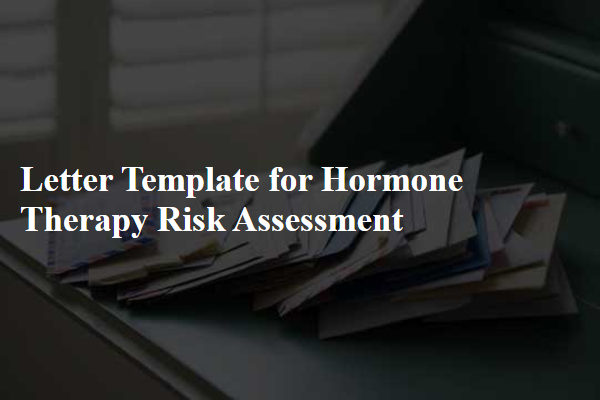
Comments